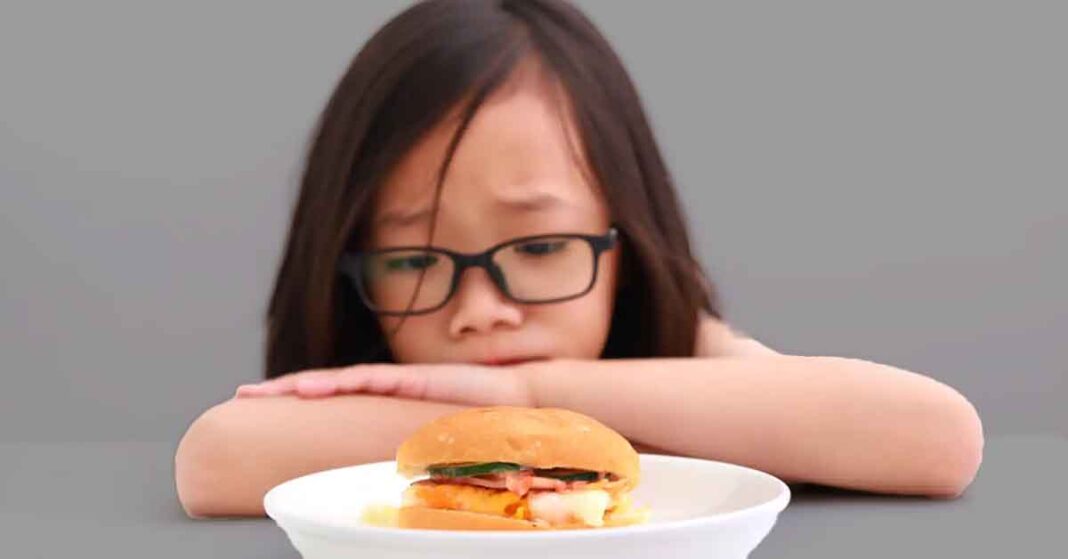As many of our readers know, a diagnosis of food allergy often brings with it a raft of anxiety and uncertainty. A recent study published in the journal Allergy sought to quantify that stress.
As part of the Global Access to Psychological Services for Food Allergy (GAPS), they aimed to assess psychological distress and service use among adults, caregivers and children with food allergies in a global survey.
The participants were comprised of 1,329 adults with food allergies and 1,907 caregivers of children with food allergies drawn from more than 20 countries recruited through patient organizations, social media ads and online survey panels to complete a survey, which was made available in six languages.
A total of 67.7% of adults and 77.2% of caregivers reported direct experience with food allergy-related psychological distress, with 51.6% of caregivers reporting their child had experienced psychological distress.
The most commonly reported issue was anxiety about having an allergic reaction.
Less than 20% of respondents had been assessed for food allergy-related psychological distress with significant differences across countries for levels of distress, screening for distress, seeing a mental health professional and being diagnosed with a food allergy-related mental health disorder
The United Kingdom, Australia and Brazil had the highest number of participants reporting distress. The most commonly reported barrier to seeing a mental health professional was cost.
The types and distribution of reported distress are indicated in the following table:
| Type of FA-related psychological distress | Adults N (%) |
|---|---|
| Anxiety about an allergic reaction | 656 (64.1) |
| Anxiety about living with my FA | 612 (62.5) |
| Anxiety about avoiding unsafe foods | 557 (60.3) |
| Worry about getting allergen free/safe foods | 447 (54.9) |
| Sadness about the impact of FA on my life | 432 (54.1) |
| Worry of a potentially fatal reaction because of my FA | 396 (51.9) |
| Loss of a normal life due to my FA | 385 (51.2) |
| Fear of trusting others to know what to do if I have an allergic reaction | 381 (50.9) |
| Worry about not being able to take part in social activities because of my FA | 356 (49.2) |
| Stress of managing my health because of my FA | 334 (47.6) |
| Worry about telling people I have a FA | 305 (45.4) |
| Anxiety about having an unnecessarily restricted diet | 287 (43.9) |
| Anxiety about administering an AAI | 237 (39.2) |
| Worry about carrying my AAI | 223 (37.8) |
| FA-related bullying | 199 (35.2) |
| Panic attacks because of my FA | 192 (34.3) |
| Anxiety about oral food challenges | 173 (32.0) |
| Worry about access to AAIs | 159 (30.2) |
| Worry about finding an intimate partner because of my FA | 154 (29.6) |
| Worry about finding or keeping a safe job because of my FA | 150 (29.0) |
| Needle phobia or other medical procedure anxiety | 83 (18.4) |
Caregivers of children reported the following types of psychological distress:
| Type of FA-related psychological distress | Caregiver N (%) | Child N (%) |
|---|---|---|
| Anxiety about me/my child having an allergic reaction | 676 (74.4) | 544 (56.4) |
| Fear of trusting others with care of my child | 645 (71.0) | N/A |
| Fear for my child’s safety | 613 (67.4) | N/A |
| Anxiety about living with FA | 590 (64.9) | 524 (54.3) |
| Worry that people won’t understand the seriousness of my child’s allergies even though I try to explain them | 543 (59.7) | N/A |
| Worry about me/my child experiencing of a potentially fatal reaction | 513 (56.4) | 326 (33.8) |
| Sadness about the impact of FA on my life | 505 (55.6) | 554 (57.4) |
| Worry about getting allergen free/safe foods | 436 (48.3) | N/A |
| Worry after my child has a severe reaction | 420 (46.2) | N/A |
| Worry about not being able to take part in social activities because of my/my child’s FA | 381 (41.9) | 387 (40.1) |
| Social isolation during routine activities due to my child’s FA | 370 (40.7) | 364 (37.7) |
| Stress of managing my/my child’s health because of my FA | 358 (39.4) | 163 (16.9) |
| Anxiety about administering AAI | 328 (36.1) | 305 (31.6) |
| Anxiety about oral food challenges | 313 (34.4) | 314 (32.5) |
| Me/My child experiencing FA-related bullying | 312 (34.3) | 218 (22.6) |
| Fear of restricting my child’s diet | 303 (33.3) | N/A |
| Worry about carrying my/my child’s AAI | 268 (29.5) | 191 (19.8) |
| Worry about access to AAIs | 230 (25.3) | N/A |
| Worry about telling people about FA | 209 (23.0) | 285 (29.5) |
| Worry about cost | 205 (22.6) | N/A |
| Panic attacks because of my/my child’s FA | 136 (15.0) | 126 (13.1) |
The researchers concluded that food allergy-related distress is common across countries but with substantial country-to-country variability. They encouraged allergy providers to routinely assess families for psychological distress and provide access to appropriate mental health resources. They determined that development and implementation of evidence-based, patient-informed accessible, affordable FA interventions in multiple languages is urgently needed.





